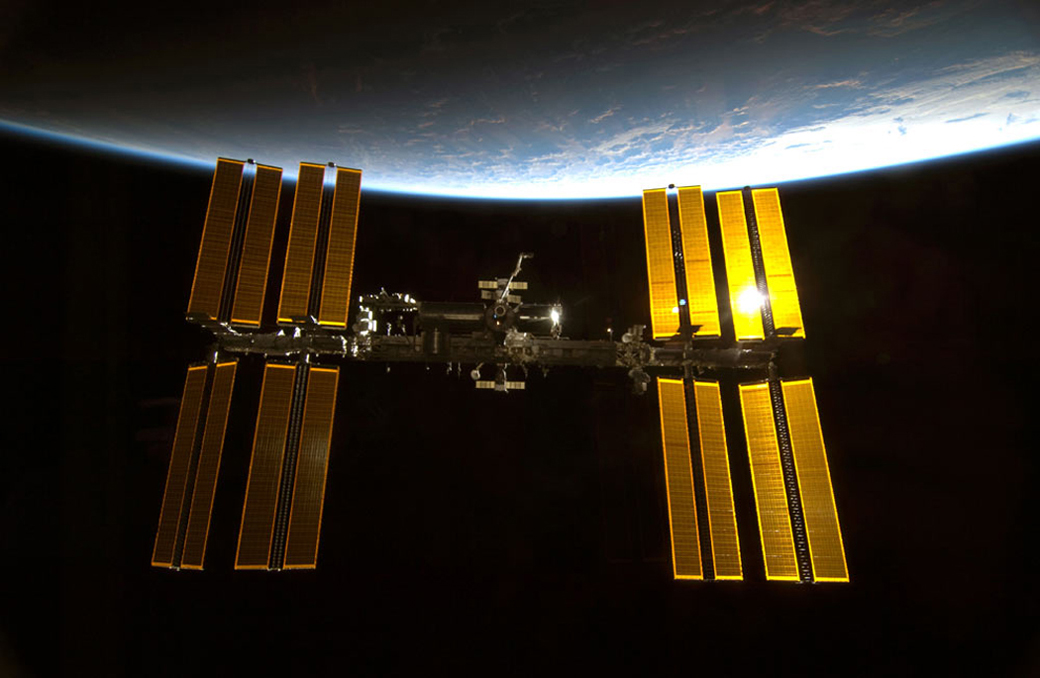Space Station Computer Failure Knocks Out Communications Briefly

This story was updated at 3:35 p.m. ET.
A main computer failure aboard the International Space Station knocked out communications between the orbiting laboratory and Earth for a short time Sunday, but the station has since recovered, NASA officials said.
One of three command and control computers on the space station failed just before 9 a.m. EST (1400 GMT), but a backup kicked in as designed to restore communications with Earth after about an hour.
Since then, each of the three computers has suffered a so-called transition event, in which the primary computer shifts to a backup, but the space station's main control computers are currently all online, NASA officials said. The glitch has occurred four times.
Engineers initially suspected the computer problem was due to commands send from Mission Control on Earth.
Mission Control said it was being "ultra-cautious" with the commands it is sending. Engineers are also studied odd signals from computers in the station's new Tranquility module, which was just delivered by the space shuttle Endeavour this month.
But a software glitch associated with how data is sent home from the space station's European-built Columbus laboratory is now the lead suspect in the space station's computer woes, Mission Control said.
Get the Space.com Newsletter
Breaking space news, the latest updates on rocket launches, skywatching events and more!
"Sounds like some good detective work going on down there," station commander Jeffrey Williams told Mission Control after hearing the news.
Only the command computers were affected and the space station's life support systems continued to work fine, NASA spokesperson Pat Ryan said on NASA TV.
"There's been no impact to life support systems on board the space station, so no threat to crew safety," Ryan said.
The space station's three main command and control computers work in a tiered setup, with one serving as the prime machine, a second as backup and the third in a standby mode for extra protection. Each of those computers has suffered a malfunction at one point, and then recovered, Ryan said.
The space station is currently home to five astronauts: Two Americans, two Russians and one Japanese astronaut. The astronauts were enjoying a much-needed day off after a busy nine days while Endeavour's six-astronaut crew was visiting.
"We're thinking we might need another day off," space station commander Jeffrey Williams of NASA told Mission Control as they worked through the glitch. Mission Control gave the crew Wednesday off to make up for the lost rest period.
Some of the astronauts missed their regular video phone calls to family members on Earth because of the computer problems. Mission Control assured them they would be able to reschedule the calls.
"I assume our families have been notified about what's going on," Williams said. Mission Control confirmed that yes, the crew's families had been alerted.
While the space station crew worked through the computer problems, astronauts aboard the shuttle Endeavour were sleeping. The crew woke up later this afternoon to prepare for a planned 10:20 p.m. EST (0320 Monday GMT) landing at NASA's Kennedy Space Center in Florida.
Rainy and cloudy weather is expected at the landing strip, as well as at a backup runway in California, and could keep the shuttle in orbit an extra day.
Endeavour is returning to Earth to wrap up a two-week mission that delivered the space station's new Tranquility module and a seven-window lookout called the Cupola.
The dome-shaped lookout includes the largest window ever sent to space and gives astronauts phenomenal panoramic views of Earth and space.
Endeavour has enough supplies to stay in orbit until Tuesday, but Mission Control plans to land the shuttle by Monday to keep one day in reserve. The shuttle's STS-130 flight is the first of NASA's five final shuttle missions before the agency retires its three-orbiter fleet in the fall.
SPACE.com is providing complete coverage of Endeavour's STS-130 mission to the International Space Station with Managing Editor Tariq Malik and Staff Writer Clara Moskowitz based in New York.
Join our Space Forums to keep talking space on the latest missions, night sky and more! And if you have a news tip, correction or comment, let us know at: community@space.com.

Tariq is the Editor-in-Chief of Space.com and joined the team in 2001, first as an intern and staff writer, and later as an editor. He covers human spaceflight, exploration and space science, as well as skywatching and entertainment. He became Space.com's Managing Editor in 2009 and Editor-in-Chief in 2019. Before joining Space.com, Tariq was a staff reporter for The Los Angeles Times covering education and city beats in La Habra, Fullerton and Huntington Beach. In October 2022, Tariq received the Harry Kolcum Award for excellence in space reporting from the National Space Club Florida Committee. He is also an Eagle Scout (yes, he has the Space Exploration merit badge) and went to Space Camp four times as a kid and a fifth time as an adult. He has journalism degrees from the University of Southern California and New York University. You can find Tariq at Space.com and as the co-host to the This Week In Space podcast with space historian Rod Pyle on the TWiT network. To see his latest project, you can follow Tariq on Twitter @tariqjmalik.









